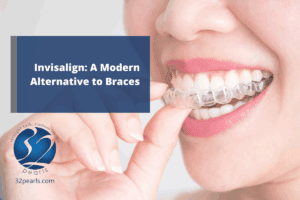Dental implantation is a science that has been around for about a quarter-century. The process, though, is as much about experience and artistic talent as it is science. That’s because you will want the resulting tooth to look as natural as possible, and that takes a good eye and lots of practice.
When teeth are lost, you have several options to replace them. Removable dentures are one option, but the fit is an issue, often causing slippage. Wearing dentures can make you very self-conscious and concerned about your appearance. Additionally, slipping dentures not only cause you to have trouble eating but talking as well. Loose dentures can cause you to slur your words or mumble to hold the teeth in place. Permanent bridgework can eliminate the slipping problem, but surrounding teeth must be compromised (reduced) to accommodate the bridge.
With a dental implant, the tooth is permanently affixed in the mouth without disturbing the surrounding teeth. It is possible to have a single tooth implant, a fixed multiple-tooth replacement, or even a full set of removable, implant-supported dentures.
A team of professionals work together to assess and plan the dental implant placement. This includes a dental surgical specialist, a restorative dentist, and a dental laboratory technician. The surgeon—a periodontist, oral surgeon, or a general dentist with advanced training—does the surgical work necessary. A restorative dentist plans and places the implant. The dental lab technician fabricates the tooth. Working together, they create a tooth, bridgework, or dentures that affix to the implant and look and function naturally.
While natural teeth are subject to decay, implanted teeth are metal and do not decay or need root canal treatment. Teeth may also be susceptible to periodontal (gum) disease, while implants are not. However, implants may be susceptible to peri-implantitis, an inflammation of the tissues surrounding the implant, so good dental hygiene is still very important, including daily brushing and flossing and regular care by your dentist.
Most people who have lost a tooth or teeth are candidates for dental implants, so long as they are generally healthy. Some diseases and conditions may preclude implants, however, so you must talk to your dentist to see if you are a candidate.





